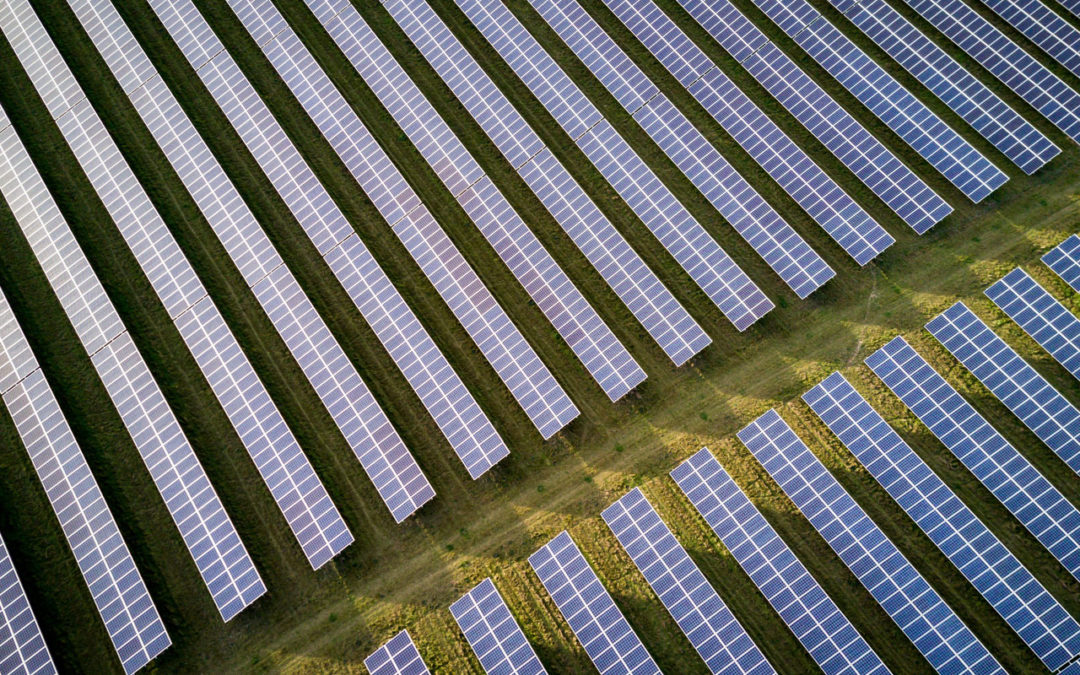
by Michael Vickerman | Feb 20, 2020 | Public Service Commission, Renewables, Solar, Utilities, Utility Scale
The Public Service Commission today cleared the path for the Badger Hollow solar farm to become a utility-owned generating asset in its entirety. Approved in April 2019 and now under construction, the 300 megawatt (MW) plant in western Iowa County will soon be co-owned by a third utility, Milwaukee-based Wisconsin Electric Power Company (WEPCO). Chicago-based Invenergy is the developer for Badger Hollow and will oversee the construction process until its completion in 2021
As a result of today’s action, WEPCO and Madison Gas and Electric (MGE) will jointly acquire a 150 megawatt share of this facility, which should start sending power into the grid by the end of 2020. Shares of the 300 MW solar farm will be divided equally between WEPCO, MGE, and Green Bay-based Wisconsin Public Service.
After reviewing the applicants’ filings, the PSC determined that both MGE and WEPCO need new generating capacity in the near future, and that this 150 MW increment of Badger Hollow would be part of the least-cost expansion plan for both utilities.
RENEW submitted a letter of support for the acquisition, as did the cities of Milwaukee and Madison. Calling attention to the state’s clean energy goals as well as those of the two cities and the utilities that serve them, our comments emphasized the economic and environmental value that Badger Hollow will yield to utility customers as well as to project participants, host communities, and the state as a whole.
The PSC’s approval effectively brings the first chapter of utility-scale solar development in Wisconsin to a close. Since June 2018, the PSC has reviewed four proposals to build nearly 700 MW of in-state renewable generating capacity, and gave the green light to all of them. The following table summarizes these projects and their relationships to Wisconsin electricity providers.
| Project |
Capacity (in MW) |
Developer |
Utility participant(s) |
Location (by county) |
| Badger Hollow |
300 |
Invenergy |
WEPCO (100 MW)
MGE (100 MW)
WPS (100 MW) |
Iowa |
| Two Creeks |
150 |
NextEra Energy |
WPS (100 MW)
MGE (50 MW |
Manitowoc |
| Point Beach |
100 |
NextEra Energy |
WPPI Energy |
Manitowoc |
| Badger State Solar |
149 |
Ranger Power |
Dairyland Power Cooperative |
Jefferson |
The next wave of solar farms will begin washing through the state regulatory review process this spring. The first one out of the gate is the Paris Solar Farm, located in Kenosha County. Invenergy’s application to build the 200 MW solar farm was submitted yesterday. Dockets have been opened for several other prospects in Wisconsin. Listed below are the solar farm projects that we anticipate will be reviewed by the PSC this year.
| Project |
Capacity (in MW) |
Developer |
Location (by county) |
Docket number |
| Paris |
200 |
Invenergy |
Kenosha |
9801-CE-100 |
| Grant County |
200 |
NextEra Energy |
Grant |
9804-CE-100 |
| Wood County |
150 |
Savion Energy |
Wood |
9803-CE-100 |
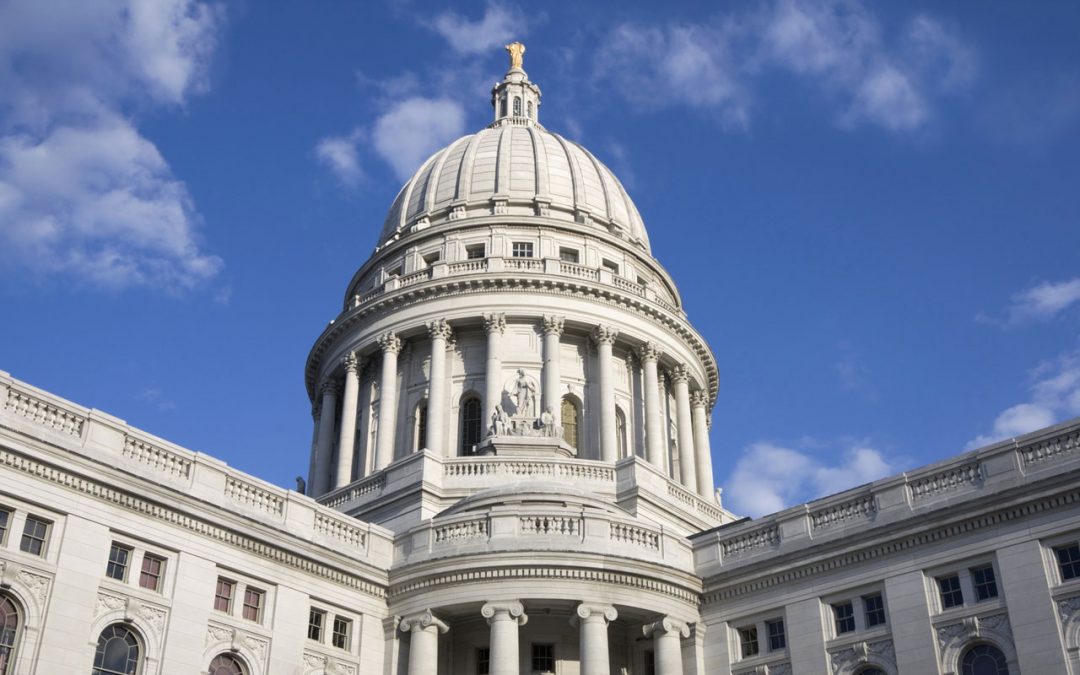
by Tyler Huebner | Jan 31, 2020 | Advocacy, Policy, Public Service Commission, Renewables
Bill Would Solidify Funding for Citizens Utility Board and Streamline Solar/Wind Permitting
RENEW Wisconsin is proud to announce our support for a legislative initiative that will support the Citizens Utility Board with a more robust level of annual funding. This bill will also streamline one element of permitting solar and wind farms of 100 megawatts or larger.
The Chairs of the Assembly Energy Committee and the Senate Utilities and Housing Committees are the co-authors of Assembly Bill 712 and Senate Bill 689, which were introduced at the request of the Public Service Commission, whose Chairperson, Rebecca Valcq, was appointed by Governor Tony Evers.
Funding for Citizens Utility Board
Citizens Utility Board (CUB) has been an important energy stakeholder since its founding in 1979. CUB’s primary role is to keep energy bills affordable for our state’s residents and small businesses.
CUB and RENEW Wisconsin have had many shared priorities over the years. Perhaps the best example is the importance of our state’s Focus on Energy program and the value of additional utility-sponsored energy conservation programs. These programs help customers save energy and save money on their utility bills, while also reducing the need to build new power plants.
As we look ahead to more coal power plant closures in Wisconsin, there is a big opportunity to strike a cost-effective balance between utility renewable energy development and customer-side solutions, including both energy efficiency and on-site renewable energy. A strong CUB will be important to those conversations.
This bill would institute a new base-funding model for CUB whereby customers of the five largest investor-owned utilities would together provide them with $900,000 in annual funding. These funds would be used by CUB to participate in most of their usual PSC activities, and they would be allowed to use outside funds to conduct other activities.
We are glad to see the PSC and Legislators find common ground to provide CUB with adequate and stable funding so they can continue to be a strong voice for ratepayers and affordable energy in Wisconsin.
Streamlining 100 MW+ Solar & Wind Farm Connections
The first two utility-scale solar farm proposals introduced in Wisconsin resulted in four “CPCN” proceedings (Certificate of Public Convenience and Necessity). Each of the two solar energy projects needed a very short connecting “tie line” to connect the solar farms into a nearby electric grid substation. That tie line is necessary to move the solar power to all the customers who can use it!
Current law mandates that the tie lines required their own separate CPCN evaluation. This bill would streamline that effort, so that a solar or wind farm and the short associated “tie line” can be reviewed together in one CPCN application. Since the renewable energy project would not be productive without the tie line and the tie line wouldn’t exist without the renewable energy resource, it makes sense to conduct their review in the same docket.
RENEW Wisconsin supports this effort which will improve project development efficiency.
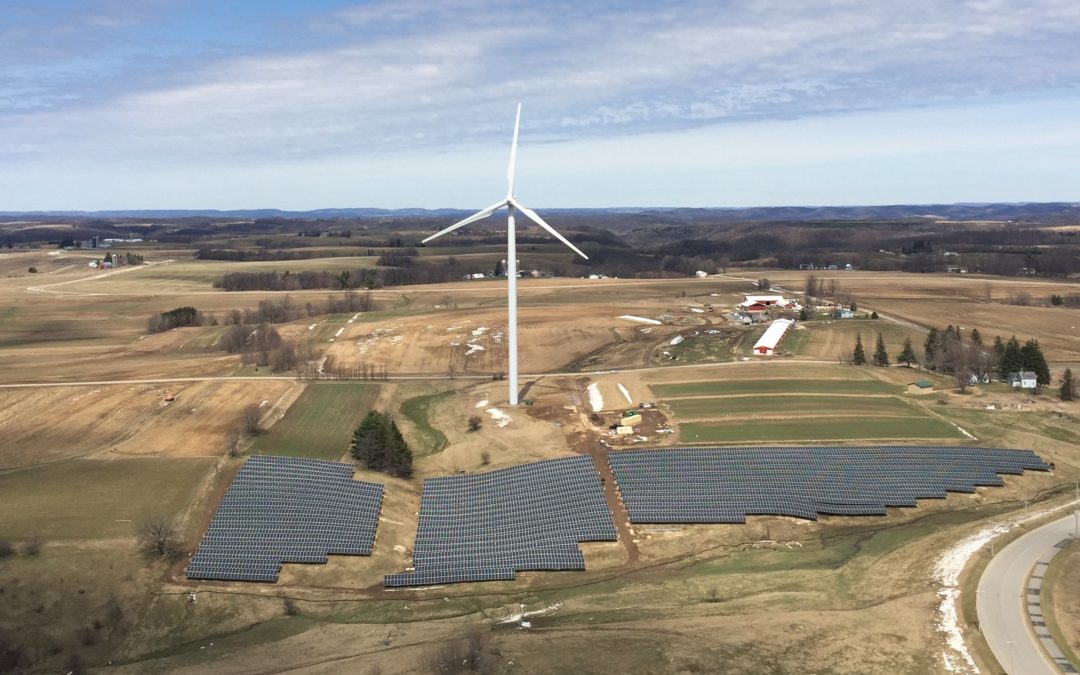
by Michael Vickerman | Jan 13, 2020 | Community, Events, RENEW Wisconsin, Renewables, Solar
At its ninth annual Renewable Energy Summit, set for Thursday January 16, 2020, RENEW Wisconsin will recognize individuals and organizations who have made significant and lasting advances in renewable energy development here in Wisconsin.
Titled “2020 Vision: The Path to 100% Clean Energy,” RENEW Wisconsin’s Summit will take place at Monona Terrace in Madison. Registration starts at 7:00 AM, with entry-level sessions on renewable energy and the electric grid at 7:30am. The main program runs from 8:30 AM to 3:30 PM. The recognition ceremony will begin at 12:45 PM. (Link to Renewable Energy Summit)
At this year’s Summit, RENEW will present five awards to renewable energy champions, developers and businesses for their leadership and accomplishments in 2019. The awards have been grouped under four categories which are listed below. They are:
- RENEWABLE ENERGY PIONEERS OF THE YEAR
- Madison Gas and Electric
- City of Middleton
- Middleton-Cross Plains Area School District
- RENEWABLE ENERGY BUSINESS OF THE YEAR
- Carlson Electric, Hayward
- RENEWABLE ENERGY CATALYSTS OF THE YEAR
- Bjorn Thompson and Jon McCarthy, Attic Angels, Madison
- Sister Rose Jochmann, Sisters of St. Francis of the Holy Cross, Green Bay
- RENEWABLE ENERGY PROJECT OF THE YEAR
- Butter Solar
- OneEnergy Renewables (developer)
- BluEarth Renewables (owner/operator)
- 10 municipal electric utilities (power purchasers)
- Organic Valley (Renewable Energy Credit purchaser)
- City of Madison (Renewable Energy Credit purchaser)
RENEWABLE ENERGY PIONEERS OF THE YEAR
This voluntary initiative, which will result in 1.5 MWAC of new solar power, involves many “firsts.” In 2017, Madison Gas and Electric (MGE) became the first electric utility in Wisconsin to launch a voluntary service that supplies electricity generated from a new solar power plant to retail customers. In 2019, MGE received approval for its first two contracts sleeved through its Renewable Energy Rider service. Ground has now been broken on an array near Middleton’s airport that will supply solar power over a 30-year period to two pioneering MGE customers, Middleton-Cross Plains Area School District and the City of Middleton. When MGE’s array is energized later this year, these utility customers will become the first in Wisconsin to receive solar power under this novel structure.
RENEWABLE ENERGY BUSINESS OF THE YEAR
A family-owned business since 1977, Hayward-based Carlson Electric has emerged as a leading solar energy contractor serving much of northern Wisconsin. In recent years, Carlson Electric has demonstrated considerable skill in financing and designing solar systems for nonprofit groups and civic entities. Indeed, Carlson’s ability to access funds through the Solar for Good program, PACE financing, and Wisconsin Energy Innovation grants was a critical factor in helping such customers as Solon Springs School District, Spooner Ice Arena, Burnett County Humane Society, and Northland Lutheran High School invest in solar power in 2019. Carlson is well on its way to completing the state’s most expansive solar initiative aimed at low- and moderate-income households. By this time next year, Carlson will have financed and installed 269 kilowatts of rooftop solar capacity directly serving 108 apartment dwellers in Sawyer County.
RENEWABLE ENERGY CATALYSTS OF THE YEAR
(1) In 2014, the Sisters of St. Francis of the Holy Cross, located in Green Bay, commissioned the installation of a 112-kW ground-mounted solar array to power the premises and serve as an outdoor classroom on clean energy. Working with the same local contractor (Eland Electric), the Sisters of St. Francis added a 98 kW array next to the existing one in 2019. The result is an inspiring and artfully arranged landscape that combines the ethic of planetary stewardship with the beauty of solar power. The leadership and guidance provided by Sister Rose Jochmann, chair of the community’s sustainability committee, was critical to the ultimate success of this initiative. In her own words: “In 2014, we had hoped to generate half of our electricity from solar but could afford only one-third. Our commitment to sustainability and care of the earth compelled us to look at our options again in 2018.”
(2) Located in Madison’s west side, Attic Angel Community is a senior living campus whose residents include many talented and dedicated volunteers. Last year, Attic Angels contracted with Pewaukee-based SunVest Solar to install PV panels on two apartment wings, totaling 98 kW. That first taste of solar power opened the door to a larger effort initiated by two volunteers living in the Attic Angels Prairie Point community, Bjorn Thompson and Jon McCarthy. Thompson and McCarthy have served on the community’s sustainability committee. Working with SunVest, they designed an offering—effectively a solar group buy—which they presented to their Prairie Point neighbors in hopes that they would take part. Of the 123 households living in Prairie Point, 40 signed up to host solar panels on their roofs, resulting in a total of 133 kW. With that initiative, combined with a 135 kW array installed in 2019 on the roof of Attic Angels’ memory care unit, the campus now hosts 366 kW of rooftop solar capacity, the largest serving a senior housing community in Wisconsin.
RENEWABLE ENERGY PROJECT OF THE YEAR
Butter Solar consists of 10 PV arrays in three states totaling 22.9 MWAC, including seven scattered across western Wisconsin with a total capacity of 17 MWAC. Taken together, the seven arrays constituted the largest addition to Wisconsin’ electric generating fleet in 2019.
From a contractual perspective, Butter Solar may be the most creative solar project in the country. Owned and operated by BluEarth Renewables, Butter Solar’s Wisconsin portfolio supplies low-cost power to the municipal utilities serving Arcadia, Argyle, Cashton, Cumberland, Elroy, Fennimore, and New Lisbon. The villages of La Farge, Viola, and Merrillan are also Butter Solar participants. The same project also generates Renewable Energy Credits for Organic Valley and the City of Madison, helping them meet their ambitious renewable energy goals.
Seattle-based developer OneEnergy Renewables, through their local Madison office, created the complex financing structure that allowed these entities to pool their resources into the project and receive value from it in return. OneEnergy also designed the arrays to blend in with the rural landscape while promoting wildlife and pollinator species. Wisconsin contractors such as Arch Electric contributed by providing expertise and high-quality workmanship.
This year’s summit program will also draw attention to other milestones and notable achievements in 2019, including the following:
- The Public Service Commission approved three large projects that will add 550 MW of solar power in the state by 2021, effectively quadrupling current levels.
- Grant County approved a 21- to 24-turbine wind project proposed by Minnesota-based Project Resources Corporation. Red Barn is the first project to be granted a permit by a local government under Wisconsin’s wind siting rule (PSC 128).
- At its Yahara landfill, Dane County completed the first project in the nation capable of receiving biogas from multiple off-site locations and injecting the cleaned-up methane into a pipeline network that serves CNG gas stations locally and across the nation.
- RENEW and Wisconsin Clean Cities team up to co-host “The Future of Transportation Day” at the State Capitol. The event engages visitors to see how vehicle technology is shaping the transportation landscape, and provided opportunities for test-driving the electric, hybrid and alternative fuel vehicles displayed outside.
- OneEnergy and Arch Electric designed and built a 1 MW array in Ashland, the third shared solar project for Xcel Energy’s Renewable*Connect program.
- Seven residential group solar purchase programs across Wisconsin accounted for 310 installations totaling 1,983 kW of new solar capacity. Both numbers represent all-time highs.
- Central Storage & Warehouse and SunPeak teamed up to install a 654 kW rooftop PV system on a third CS&W property, this one in Caledonia. With more than 2 MW powering its operations, CS&W is the second largest solar host in Wisconsin.
- Adding 230 kW of PV generation atop its parking canopies, Appleton International Airport (ATW) now has more than 500 kW of solar powering its operations, the most at any Wisconsin airport.
- RENEW’s Solar for Good program provides grants that, in 2019, leveraged the installation of more than one megawatt of solar capacity serving 27 nonprofit-owned sites across the state.
Click here for more information on the 2020 Summit program agenda, speakers, and registration.
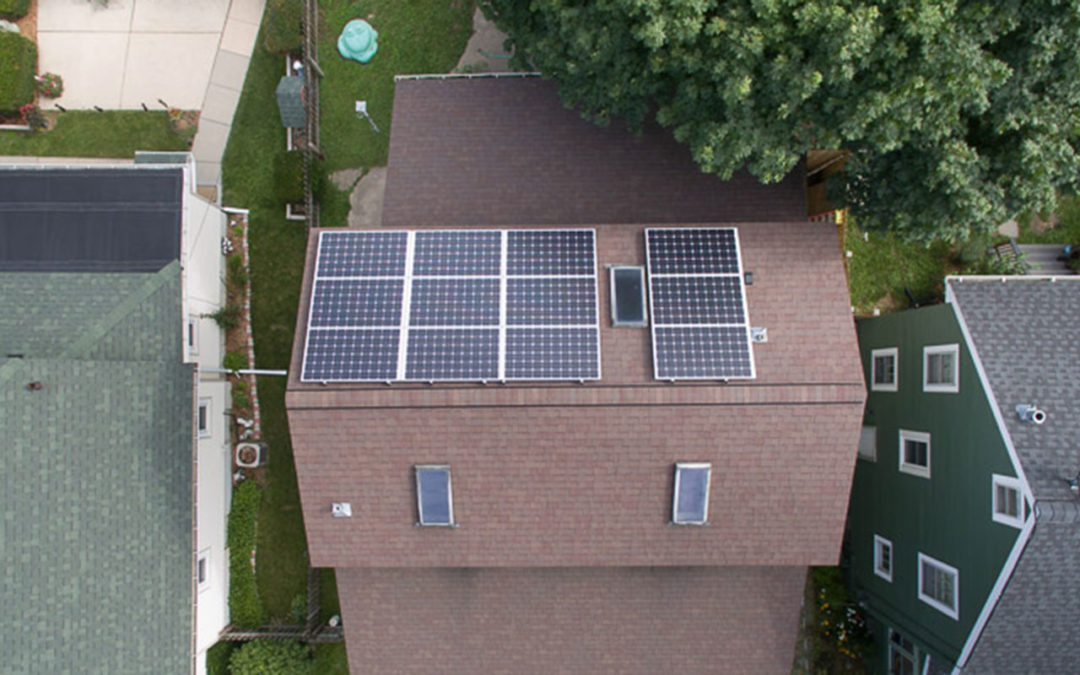
by Tyler Huebner | Jan 8, 2020 | Focus on Energy, Renewables, Solar
The Focus on Energy Renewable Energy Program had another very solid year in 2019. Late last year, the PSC approved several substantive changes in program offerings that will affect the renewable energy industry and its customers going forward. Renewable energy businesses and their customers need to learn about these changes.
First, let’s see how 2019 fared!
Focus on Energy Renewable Energy Program – 2019 Results
For non-residential customers, incentive totals declined slightly in 2019, but substantially fewer PV projects received funding: 135 in 2019 compared with 220 in 2018. At the same time, the average system size increased to 75 kW, up from 48 KW a year ago.Nearly the same number of homes received incentives in each of the past two years – 768 in 2019 compared with 750 in 2018. But more dollars were allocated in 2019 (up from $1.2 million in 2018), because system sizes were larger (7.2 KW in 2019 vs. 6.2 KW in 2018).
Geothermal continued a strong showing, with 77 total installations in 2019, compared with 68 in 2019. In addition, a small wind project received funding in 2019. No biogas projects were funded in 2019.
Changes to the Focus on Energy Renewable Energy Program for 2020
The Focus on Energy renewable energy program will undergo several important changes in 2020 – partly as a result of the trends seen in 2019. Throughout November and December 2019, the Public Service Commission voted to approve these changes, which Aptim, the Focus on Energy administrator, implemented on January 1, 2020.
First, Focus incentives for solar electric (photovoltaic or PV) projects will undergo the biggest change. In a move that many of our members desired to improve their sales cycle, Focus will be changing to “first-come, first-serve” prescriptive incentives for ALL solar PV projects starting in 2020.
However, as demand is expected to remain strong, the elimination of the competitive incentive program for larger PV projects means that fewer dollars will be available for individual projects. This is especially true for larger PV systems. Whereas a customer in 2019 could apply for a maximum incentive of $400,000 through the competitive program, this year the maximum incentive is set at $60,000.
The rationale for this change is to spread available funding across more solar PV projects and incentivize smaller PV projects. We had members with a multitude of opinions on this change, but this is what the PSC and Aptim, respectfully, have landed on.
The tables below shows the 2020 Solar PV incentive levels.
Residential Customer Solar PV Incentives
Business Customer Solar PV Incentives
At the bottom of this post, I’ve included a number of additional details about the 2020 solar program. You can learn more about 2020’s solar program at https://focusonenergy.com/residential#program-renewable-energy
Second, the competitive (RECIP) program will continue for other types of renewable energy projects, such as biogas, small wind, solar thermal, or biomass technologies. The hope is that by taking solar PV out of that competitive program, other technologies may have a better chance of getting funded.
Third, geothermal technologies will be moving out of the Renewable Energy Program in 2020. Residential geothermal incentives will be $750, and information can, for now, still be found under the residential renewable energy page. For buildings (i.e. “non-residential”) installations, geothermal will be treated like any “custom” energy efficiency measure.
Fourth, for Biogas there will still be grants available to conduct Biogas Feasibility Studies in amounts up to $15,000. In addition, biogas projects can compete in the RECIP competitive grant process. You can learn more about these opportunities at https://focusonenergy.com/business/renewables.
Here are additional details on the Focus on Energy Solar PV Program for 2020. These details were provided by Focus on Energy in late 2019 via email to their renewable energy trade allies.
Summary of Renewable Rewards updates for 2020
- The Rural portion of the program will be for residential customers and Agricultural Producers.
-
-
- Residential Rural customers will get up to a $500 bonus for installing a system. Bonus can’t be larger than prescriptive incentive. It will be equal to the incentive amount or $500, whichever is smaller.
- Agricultural Producers (Business customers) will qualify for an incentive match up to $10,000.
- Agricultural Producers are defined as “businesses engaged in the production of grain, livestock, milk, poultry, fruits, vegetables, bees and honey; fish; shellfish; or other common agricultural products including greenhouses.
- A Reservation system will be put in place for all projects.
-
- Residential customer projects will have three (3) months to complete.
- Business customer projects will have six (6) months to complete.
- There will not be a down payment requirement to reserve funding.
- Projects without a proposed completion date will be moved to the back of the queue.
- Reservation form will be posted on the website on January 3, 2020.
- All Reservations and Applications will be done online. If a customer or Trade Ally is unable to use an online version, the Program will provide them with a PDF version upon request, but it will not be available on the website.
- Azimuth rules: All projects within 90 degrees of due South (Compass Direction of 90 to 270 degrees) will be eligible for incentives and will receive the same incentive amount, regardless of azimuth.
- Projects completed in 2019 will get the 2019 incentive rate (will have 60 days from completion date to submit application).
- Projects completed in 2019 will receive the 2019 incentive rate (will have 60 days from completion date to submit application).
- Residential projects that began construction prior to November 1, 2019, and will complete before January 31, 2020 will be eligible for the 2019 incentive rate.
- Commercial projects that began construction, signed contracts, or signed purchase orders prior to November 1, 2019, but will not complete until 2020, will be eligible for the 2019 incentive rate only (12% of project cost, up to $4,000)
- Projects that sign contracts or purchase orders after November 1, 2019, and complete in 2020, will be eligible for the 2020 incentive rate.
- The total budget for Renewable Rewards is set at $4,000,000. The budget will be divided between the following customer groups and project sizes:
-
-
- Remaining funding will be posted on the website and updated every two weeks.
- For business customers: if funding in one tier is exhausted, the customer will have the option to reserve funding for the maximum amount in a smaller tier, provided funding is still available.
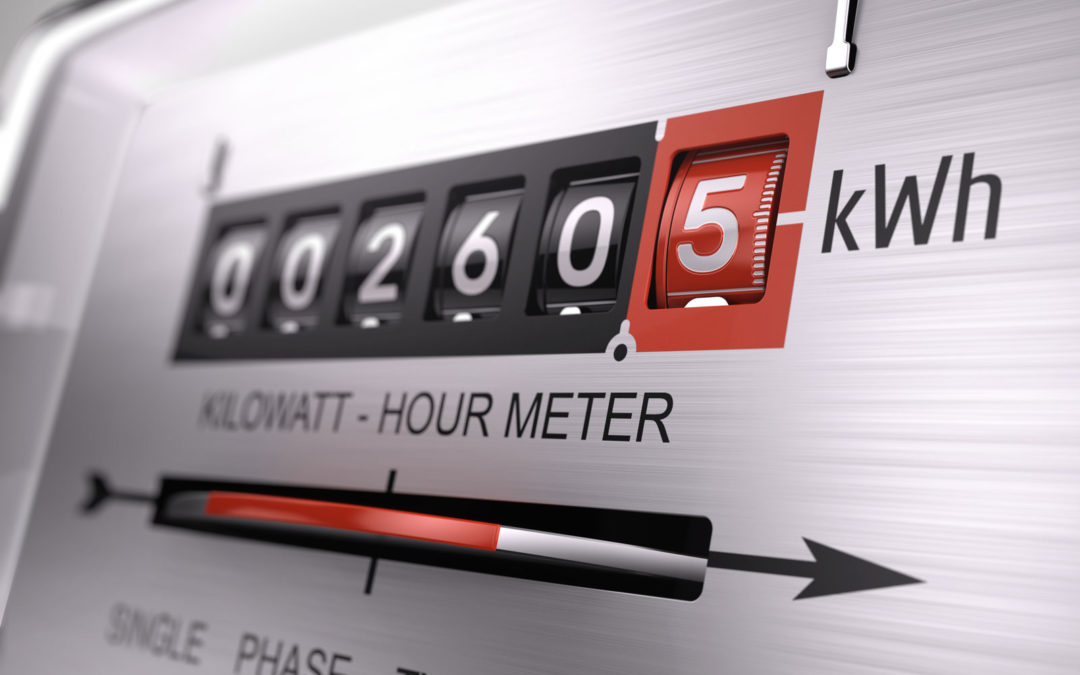
by Tyler Huebner | Jan 7, 2020 | Renewables, Solar, Utilities
Our goal is to streamline the process for renewable energy installations and utility reviews.
Over the past two years, RENEW Wisconsin has been actively working as a member of the Wisconsin Distributed Resources Collaborative (WIDRC) to modernize and improve the necessary forms for applying to install a new distributed generation (DG) system in Wisconsin.
We are excited to help spread the word that as of January 1, 2020, the new forms are available and recommended for use!
These forms represent one of the first formal steps in the process of getting approval to install a new distributed generation system in Wisconsin. Distributed generation systems include solar electric (photovoltaic), small wind, battery energy storage, biogas or biomass electric generators, and/or other technologies that fall under Wisconsin Administrative Code Chapter PSC 119.
Access the New Wisconsin DG Application Forms
Distributed generation installers must complete these forms and submit them to their local electric provider to start the process of obtaining the ability to “interconnect” with the local electricity grid.
You can download the new forms here. See the right-hand column “New Wisconsin Interconnection Forms” for the links to each form.
These DG application forms replace the 6027 and 6028 forms and consolidate the information needed into one “base” form, the Wisconsin Standard Distributed Generation Application Form. Then, installers will fill out a more streamlined technology-specific form to provide the information on which type of distributed generation system(s) will be installed.
The forms are fillable in PDF and can be digitally saved to speed up the process. In addition, the forms now clarify that each size category for DG systems is based on AC electricity ratings.
Installers should continue to use the same 6029 (20 kilowatts and under) and 6030 (above 20 kilowatts) Interconnection Agreement forms when the system is ready to be interconnected to the utility.
Reducing Solar “Soft Costs”
Improving these forms is one of many activities we are undertaking to reduce the “soft costs” of installing solar and DG systems in Wisconsin. In particular for solar, where approximately 1,000 systems are now being installed annually in Wisconsin, we’re looking to save time in the permitting, inspection, and interconnection processes. Time saved in each of those processes will add up quickly when installers are doing it one thousand times each year!
To make this happen, Jodi Jean Amble, our Communications & Events Director, spent a lot of hours designing and constructing these new forms to be very user-friendly. We are hopeful these forms will make the DG application process a little bit easier for our members and all the companies that need to use them.
To learn more about this process and update, please check out this letter that was provided to Wisconsin electric utilities and DG installation firms.

by Tyler Huebner | Dec 19, 2019 | Public Service Commission, Renewables, Solar, Utilities, Utility Scale
Today, the Public Service Commission of Wisconsin approved the Point Beach Solar Farm project!
Point Beach will be a 100 megawatt solar farm, and will supply electricity to WPPI Energy. WPPI is a wholesale energy provider for 41 municipal utilities in Wisconsin plus 10 more across Michigan and Iowa. The developer is NextEra Energy Resources, one of RENEW Wisconsin’s newest Business Members.
Almost three years ago, WPPI Energy made a splash by announcing the results of a request for renewable power proposals. At the time, wind energy was expected to be the winner of that competition. But this solar farm proposal was selected, foreshadowing how cost-effective solar power was becoming in Wisconsin.
Since then, other major power suppliers have followed WPPI Energy’s lead. In April 2019, the PSC approved the Badger Hollow and Two Creeks Solar Farms. Along with the 49.9 megawatt Richland County Solar Farms which was approved at the County level, these projects marked the first utility-scale solar approvals in Wisconsin.
This Point Beach Solar Farm will be placed on ground right around the existing Point Beach Nuclear Energy plant. It will also be located next to the Two Creeks Solar Farm now in construction, with the two projects combining to provide 249 megawatts of solar capacity in Manitowoc County.
With today’s PSC approval in hand, construction will begin next year and it should come online in 2021. It is expected to provide enough energy to serve more than 23,000 people.
Congratulations to NextEra Energy Resources and WPPI Energy on this project approval!





